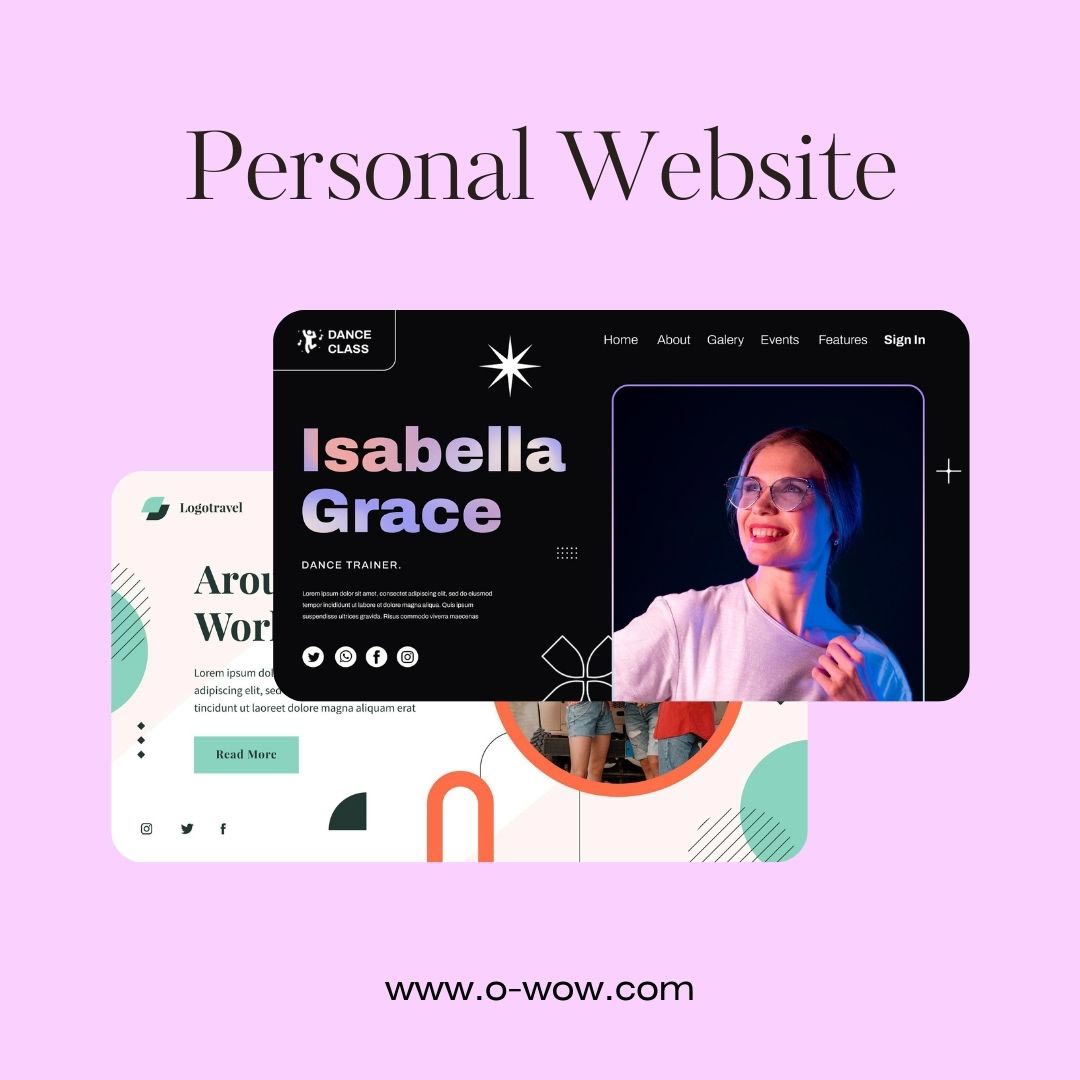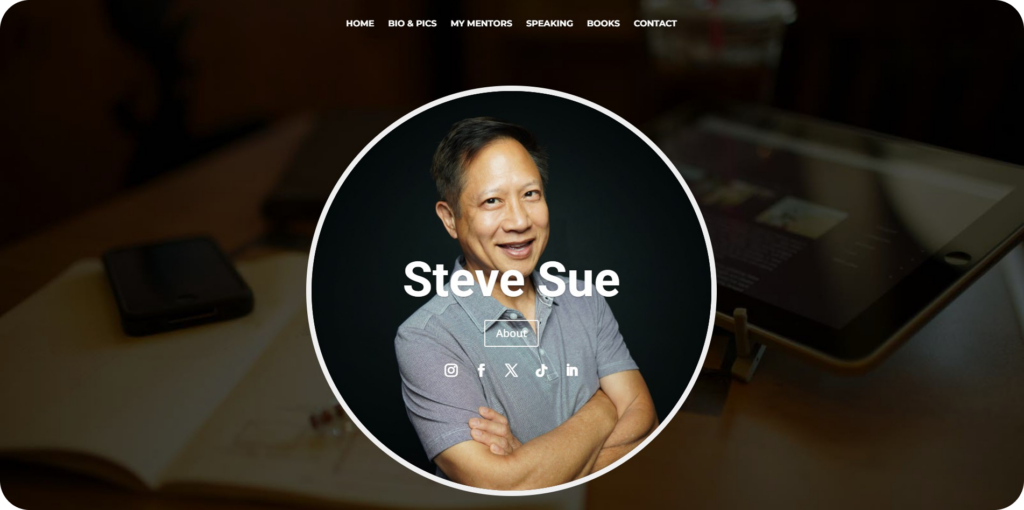
In an age where first impressions are made online, your personal website is no longer optional — it’s essential. Whether you’re a freelancer, job seeker, entrepreneur, or student, having your own website is the smartest move you can make to build a strong personal brand and own your online presence.
Here’s why creating a personal website should be your top digital priority this year.
What Is a Personal Website — And Why Does It Matter?
A personal website is a customized, professional space online that represents you. It’s more than just a digital résumé — it’s your online headquarters. While social media platforms are limited and crowded, your personal website gives you full control over your story, your work, and your value.
Think of it as:
- Your digital business card
- Your personal branding platform
- Your 24/7 online portfolio
Whether you use it to land jobs, attract clients, or build credibility, your website is the foundation of a strong digital identity.
Who Needs a Personal Website?
If you’re asking yourself whether you need a personal website, the short answer is: yes. But here’s a closer look at who benefits the most:
Older Professionals (like speakers, academics, newscasters, chefs, and sports figures):
If you’ve built a career offline, it can be tough to translate that success into a strong online presence. A personal website helps tell your story, organize your media appearances or accolades, and ensure you’re easily discoverable by the right audience. You may need more guidance and services to get started, but the impact is well worth it.
Professionals and Job Seekers:
A personal website allows you to present your experience, accomplishments, and personality in a way that a résumé simply can’t. When employers or clients Google your name (and they will), they’ll find a polished, professional presence on your terms.
Freelancers and Consultants:
Need more clients or speaking gigs? A personal site with your portfolio, testimonials, and contact information builds trust and positions you as a credible authority in your field.
Students and Recent Graduates:
Even without a long résumé, you can use a website to highlight academic projects, leadership roles, volunteer work, and passions, setting yourself apart from the crowd.
Creators, Coaches, and Speakers:
Whether you’re growing an audience or showcasing your expertise, your website becomes your digital home base for blogs, videos, event calendars, media features, and more.
Anyone Building a Future-Proof Career:
In an era of layoffs, rapid tech change, and remote work, a personal website gives you control over your professional identity. It’s not just about today—it’s an investment in your future.
What a Personal Website Isn’t: A Word About Wikipedia
We need to be clear: a personal website is the right place for building your brand. Wikipedia is not.
Some professionals think getting a Wikipedia page will give them instant credibility, but this is a big mistake. Wikipedia is an encyclopedia, not a personal résumé. It’s designed for documenting notable public subjects, not for self-promotion or personal marketing.
We’ve seen someone try this approach, and their page ended up getting flagged. It was marked with alerts, and instead of boosting their reputation, it ended up damaging it.
The bottom line is that your personal website is the place to tell your story, not Wikipedia.
Top Benefits of Having a Personal Website
- Build Your Personal Brand: Stand out with your own voice, visual identity, and story, not a one-size-fits-all social profile.
- Improve Your Google Visibility: Ranking for your own name and keywords gives you more control over what people see when they search for you.
- Increase Your Credibility: A clean, modern website shows you’re serious and professional — which builds trust with clients, employers, and collaborators.
- Centralize Your Online Presence: Link all your work, platforms, and projects in one place so you’re easy to find and contact.
- Future-Proof Your Career: Platforms change. Jobs change. A personal website keeps your brand consistent no matter what.
What to Include on Your Personal Website
You don’t need to build a giant site to get started. Start simple and add as you go. Here’s what to include:
- A short, engaging bio (that sounds like you)
- A professional photo
- A list of your skills, achievements, or services
- Links to your social profiles, projects, or content
- A clear contact method
- A custom domain (e.g., [yourname].com)
Optional upgrades:
- A blog to share insights or tutorials
- A downloadable résumé or press kit
- Portfolio with case studies or client work
- Testimonials or reviews
Want an Example? Here’s One in Action
If you’re wondering what a simple but effective personal website looks like, check out SteveSue.com. Steve is a speaker who uses his site to introduce himself, share his work, and make it super easy for event planners and collaborators to get what they need.
His site includes:
- A clean homepage with a clear intro
- A professional headshot
- A short bio that can be copied/pasted for events or interviews
- Speaking topics and contact info
These simple touches save time and make managing his personal brand way easier. For someone who gets asked for bios, photos, or speaker materials regularly, this setup is a game changer.
Pro tip: We’ve included a screenshot of Steve’s homepage below so you can see how it all comes together.

Final Thoughts
In 2025, your digital reputation is just as important as your real-world one. Building a personal website isn’t just about showing off — it’s about showing up. It’s about taking ownership of your future, presenting your best self online, and making it easy for people to connect with you. Your personal brand doesn’t live on Instagram or LinkedIn — it starts with your name. So ask yourself: if someone Googled you today… what would they find?
Need help creating your personal website or online strategy? Let’s talk — we help professionals and entrepreneurs build personal brands that get noticed.
